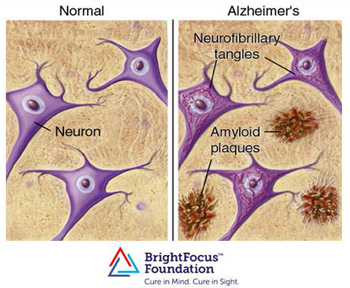 Science has believed for long that Alzheimer’s disease and type 2 diabetes are connected, but new research from Albany University suggests the mechanism by which the association implicates Alzheimer’s as a product of late-stage diabetes, due to the way increased insulin production stops destructive amyloid plaques from getting broken down. Science has believed for long that Alzheimer’s disease and type 2 diabetes are connected, but new research from Albany University suggests the mechanism by which the association implicates Alzheimer’s as a product of late-stage diabetes, due to the way increased insulin production stops destructive amyloid plaques from getting broken down.
 The research team presented its findings at the Annual Society for Neuroscience meeting in San Diego. Type 2 diabetes causes people’s bodies to overproduce insulin, as a result of high blood glucose, and the excess insulin trickles into the brain. Once there, it disrupts a key enzyme that normally erases amyloid plaques, a build-up of which scientists have suspected leads to Alzheimer’s. The plaques accumulate with no mechanism to erase them, and cognitive decline follows. McNay and his colleagues fed lab rats a high-fat diet in order to induce type 2 diabetes. Once their bodies reached a diabetic state, the researchers issued the rats memory tests. They found that as the diabetes worsened so too did the rats’ ability to perform their cognitive tests. The research team presented its findings at the Annual Society for Neuroscience meeting in San Diego. Type 2 diabetes causes people’s bodies to overproduce insulin, as a result of high blood glucose, and the excess insulin trickles into the brain. Once there, it disrupts a key enzyme that normally erases amyloid plaques, a build-up of which scientists have suspected leads to Alzheimer’s. The plaques accumulate with no mechanism to erase them, and cognitive decline follows. McNay and his colleagues fed lab rats a high-fat diet in order to induce type 2 diabetes. Once their bodies reached a diabetic state, the researchers issued the rats memory tests. They found that as the diabetes worsened so too did the rats’ ability to perform their cognitive tests.
|

|

